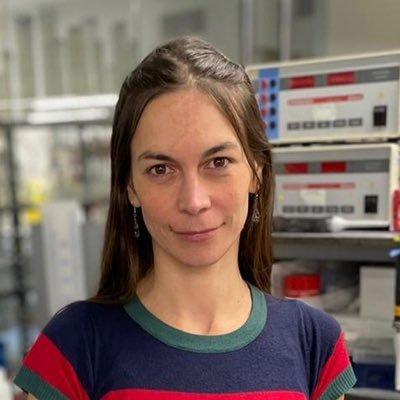Staff Directory
Professor Andrejs Braun
Professor of Genome Regulation Director of Education
My group is interested in epigenetic regulation of somatic mutagenesis in normal and malignant B cells. We aim to understand how alterations in the nuclear envelope influence B cell chromatin conformation, and what the epigenetic consequences of these alterations are.
Dr Jeff Davies
Reader in Haemato-oncology and Honorary Consultant
My group works on developing novel approaches to improve efficacy and safety of allogeneic stem cell transplantation and adoptive immunotherapy as treatments for blood cancers. We focus on T-cell alloreactivity in the context of stem cell transplantation and immunotherapy.
Dr Özgen Deniz
Lecturer
Our research aims to understand the epigenetic regulation of transposable elements and how their dysregulation contributes to the generation and development of cancer. In particular, we investigate their roles as gene regulators and triggers of anti-tumour immunity in blood cancers.
Professor Jude Fitzgibbon
Honorary Professor
My research group works on molecular pathology, genetics and progression of leukaemia and lymphomas, aiming to improve on current diagnostic, prognostic and treatment strategies.
Dr Paolo Gallipoli
Clinical Reader in Experimental Haematology
My research interests focus on mechanisms of disease initiation and maintenance and the identification and validation of novel therapeutic targets in myeloid leukaemias.
Dr Miguel Ganuza
Senior Lecturer
Our goal is to identify mechanisms that support haematopoietic stem cell function and understand how the leukaemic stem cells “play” with these mechanisms to thrive.
Professor John Gribben
Professor of Medical Oncology
My primary research interests include the immunotherapy of cancer (including stem cell transplantation), the identification of B-cell-tumour antigens; and the detection and treatment of minimal residual disease in leukaemia and lymphoma.
Professor Kamil R. Kranc
Honorary Professor of Haematology
The central aim of our laboratory is to understand the biology of leukaemic stem cells and identify therapeutic targets to specifically eradicate them, thus discovering novel and efficient leukaemia therapies. We also focus on understanding haematopoietic stem cell biology with the hope to harness this knowledge for expanding them for therapeutic purposes.
Dr Sergey Krysov
Reader in Molecular Biology
My studies concentrate on the immunogenetics of human B cell malignancies, such as chronic lymphocytic leukaemia, follicular lymphoma and the role for B cell receptor in the pathogenesis of B cell lymphoma and leukaemia.
Dr Rifca Le Dieu
Clinical Reader
I am the Module Lead for 3 undergraduate Biomedical Science Modules. I am also the Cancer Theme Lead for MBBS with direct responsibility for Year 2 Cancer Week. In addition, I supervise MSc project dissertations.
Dr Diu Nguyen
Lecturer
The overarching goal of our laboratory is to understand the biology of normal haematopoietic and leukaemic stem cells in order to selectively kill cancer stem cells for better leukaemia treatment.
Professor Jessica Okosun
Professor of Translational Cancer Research
My research focuses on understanding the genetic and molecular mechanisms that underlie the initiation and progression of B-cell non-Hodgkin’s lymphomas in order to define clinically-relevant biomarkers.
Dr John Riches
Clinical Reader in Cancer Immuno-metabolism
My major research interest is understanding the metabolism of chronic lymphocytic leukaemia and lymphoma with the aim that this will underpin the development of the next generation of anti-metabolic drugs for these diseases.
Dr Kevin Rouault-Pierre
Senior Lecturer
My main research interests are in haematopoietic stem cells (HSCs) and leukemic initiating cells. I seek to understand how intrinsic and extrinsic signals are integrated by normal and malignant stem cells.
Dr Bela Wrench
Clinical Senior Lecturer
We are interested in understanding the cellular and molecular mechanisms responsible for relapses in acute lymphoblastic leukaemia and progressing these insights into translational diagnostics and clinical trials.
Dr Findlay Redvers Bewicke-Copley
My work is currently focused on lymphoma, working on variant calling and gene expression analysis of NGS data.
Dr Pedro Casado-Izquierdo
My work is based on studying signalling networks in AML primary samples in order to predict responses to kinase inhibitors.
Dr Marta Crespi-Sallan
My research is focused on describing the mechanisms underlying Lamin B1 nuclear disassembly in B-cell normal development and how a dis-regulated Lamin B1 removal pathway could lead to several haematological malignancies within the germinal centre in secondary lymph organs.
Dr Ana Levi
My focus is on investigating the epigenetic regulation of the PI3K pathway and identifying an effective combination therapy that will disable compensatory bypass routes, overcoming drug resistance.
Dr Christopher Mapperley
My research is focused on investigating how the epitranscriptome regulates normal and malignant haematopoiesis.
Dr Ana Rio-Machin
My research project aims to identify germline mutations in families with leukaemia of unknown aetiology and study the intra and inter leukaemia heterogeneity observed in these families, through examination of clonal evolution and secondary genetic events.
Dr Raul Sanchez Lanzas
Our research is focused in defining the cellular interactome of haematopoietic stem cells and leukaemic stem cells inside their niches during adulthood, ageing and disease. We are also interested in the cellular and molecular mechanisms that drive clonal selection and evolution in clonal haematopoiesis.















